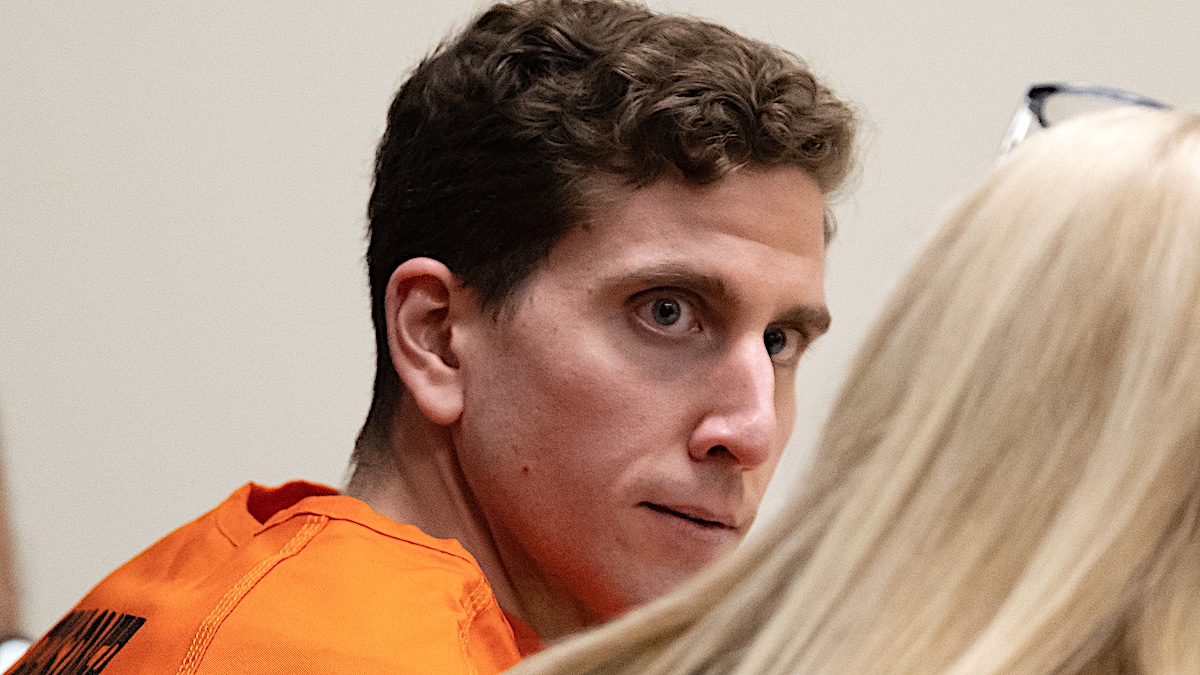
In a blow to Bryan Kohberger’s defense, an Idaho judge has formally struck down attorney Anne Taylor’s attempt to shift suspicion onto alternate perpetrators in the Idaho 4 murder case, paving the way for the highly anticipated trial to begin as scheduled.
Judge Steven Hippler’s decisive ruling came June 27, denying Taylor’s motion to introduce theories involving four alternate suspects—an effort the court deemed purely speculative and devoid of credible connections to the murder.
Who were the alternate perpetrators?
Judge Hippler denied Bryan Kohberger’s defense team’s motion to point the finger at alternate perpetrators.
— MassGuy (@RealMassguy) June 26, 2025
To say the defense was slinging mud at the wall in regards to their alternate perpetrator argument, is entirely appropriate. We knew it would be weak, but this is fucking… pic.twitter.com/39EwDnwjdc
The defense’s legal team had proposed four individuals as possible alternate killers in the brutal November 2022 stabbing deaths of University of Idaho students Ethan Chapin, Xana Kernodle, Madison Mogen, and Kaylee Goncalves.
Three of these individuals were reportedly socially linked to one or more victims, had attended gatherings with them, lived near the crime scene, and were familiar with the home; the fourth was said to have briefly encountered one victim in a store weeks before the killings.
Despite initial hope that these theories would introduce reasonable doubt, Judge Hippler found that such claims relied solely on conjecture and lacked motive, forensic evidence, or direct connection to the crimes.
Alternate perpetrators: “Rank speculation”
In his written order, Judge Hippler emphasized that the defense’s offer of proof can give rise to only wild speculation, and that the proposed alternate suspects—all of whom had cooperated fully, including submitting DNA and fingerprint samples—were already ruled out after analyses failed to match crime‑scene evidence.
He stated bluntly, “Nothing links these individuals to the homicides… it would take nothing short of rank speculation by the jury to make such a finding.”
Taylor’s delay request also denied
The judge overseeing the Idaho quadruple-murder trial has denied Bryan Kohberger's request to delay the trial.
— Nicholas Bogel-Burroughs (@NickAtNews) June 26, 2025
Jury selection will begin on Aug. 4 and the trial is expected to begin two weeks later, on Aug. 18.
It could last for several months, into November. pic.twitter.com/sJeSXeKp4O
Taylor had also requested a delay in jury selection, citing ongoing discovery needs, difficulties securing witness interviews, and potential jury bias due to intense media coverage, including a recent Dateline episode and other high‑profile true crime programming.
However, Judge Hippler rejected the bid, noting that prolonged delays would only fuel further speculation and sensational reporting. He remarked that previous postponements had already given the media more time to produce books, documentaries, and material that could shape public opinion before a jury could hear the facts.
With the alternate‑perpetrator theory dismantled and the trial start date confirmed, the court has now set the schedule firmly in motion. Jury selection is slated for early August, with opening statements expected to begin on August 18, 2025, in Boise, Idaho, following a venue change to ensure a fair jury pool.
Kohberger, a former criminal justice graduate student, remains charged with four counts of first‑degree murder and one count of burglary. Prosecutors are pursuing the death penalty.
Kohberger defense: Few options left
The collapse of this alternate‑perpetrator strategy marks a turning point in Kohberger’s defense. Their only remaining viable path appears to hinge on discrediting physical evidence and forensic testimony, such as DNA found on a knife sheath and cell‑phone tower data placing Kohberger in the vicinity. Without the alibi defense or a person of interest to cast doubt, the defense is expected to pivot toward highlighting inconsistencies in the prosecution’s case to instill reasonable doubt.
With the trial imminent and early legal gambits falling away, all eyes now turn to August, when the courtroom will finally hear the evidence and arguments on both sides. The question on everyone’s mind is this: Will Kohberger’s defense, now stripped of its alternate-perpetrator narrative, be able to sway a jury, or will the prosecution’s case prove too compelling?







